Match items in Column I with those in Column II.
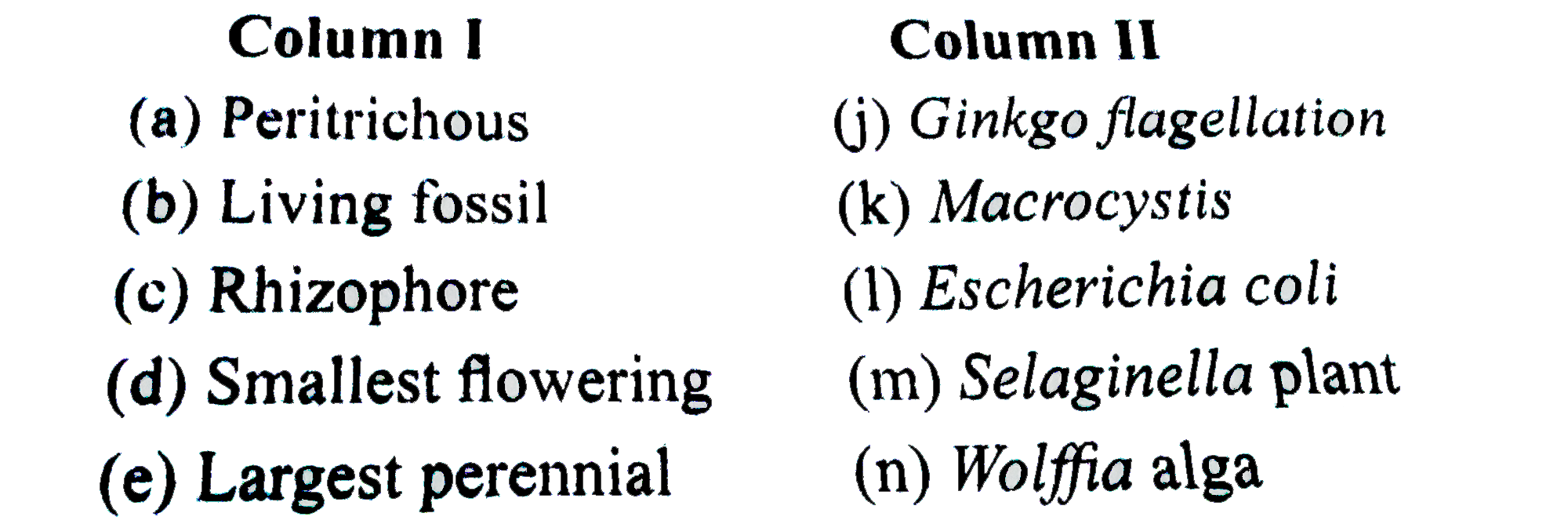
(a) → (k), (b) → (j), (c) → (I), (d) → (m), (e) → (n)
(a) → (n), (b) → (I), (c) → (k), (d) → (n), (e) → (j)
(a) → (j), (b) → (k), (c) → (n), (d) → (I), (e) → (k)
(a) → (I), (b) → (j), (c) → (m), (d) → (n), (e) → (k)
The correct Answer is:D
Step by step video solution for Match items in Column I with those in Column II. by Biology experts to help you in doubts & scoring excellent marks in Class 11 exams.
Topper's Solved these Questions
- BOOK - CENGAGE BIOLOGY ENGLISHCHAPTER - PLANT KINGDOMEXERCISE - ARCHIVES70videos
PLANT KINGDOM
- BOOK - CENGAGE BIOLOGY ENGLISHCHAPTER - PLANT GROWTH AND DEVELOPMENT EXERCISE - Archives28videos
PLANT GROWTH AND DEVELOPMENT
- BOOK - CENGAGE BIOLOGY ENGLISHCHAPTER - RESPIRATION IN PLANTS EXERCISE - ARCHIVES12videos
RESPIRATION IN PLANTS
Similar Questions
Match the items in Column I with those in Column II
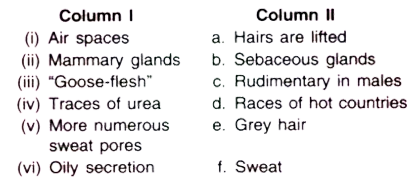 View Solution
View SolutionMatch the items in Column with those in Column II.
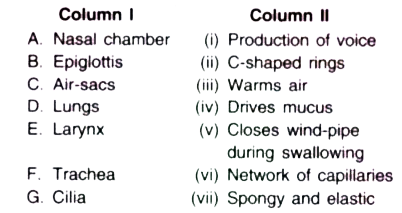 View Solution
View SolutionMatch the items in Column - I with those in Column - II and choose the correct option from the codes given below :
Column-I Column-II (a) Catalytic converter (i) Hospital waste (b) Muffler (ii) SO2(c) Incinerator(iii) Noise(d) Scrubber(iv) COView SolutionMatch the following
Match the items in column I with those in column II.
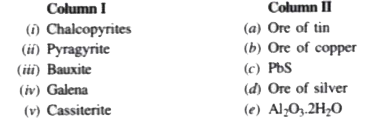 View Solution
View SolutionMatch the following
Match the items in column I with those in column II.
 View Solution
View SolutionMatch the following
Match the items in column I with those in column II.
 View Solution
View SolutionMatch the items in Column-I with those in Column-II
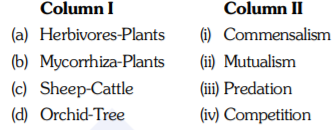
Select the correct option from following:View SolutionMatch the items in Column A with those in Column B.
 View Solution
View SolutionMatch the items in Column-I with those in Column-II and choose the correct option from the codes given below:
Column-IColumn-II(a)Ecosystem Experiments (i)Norman Myers(b)Species-Area relationships(ii)Alexander von Humboldt(c)Biodiversity hotspots(iii)Paul Ehrlich(d)Rivet Popper Hypothesis(iv)David TilmanView SolutionColumn I lists some properties of waves and Column II lists the factors on which they depend . Match the entries in Column I with those in Column II.
 View Solution
View Solution

